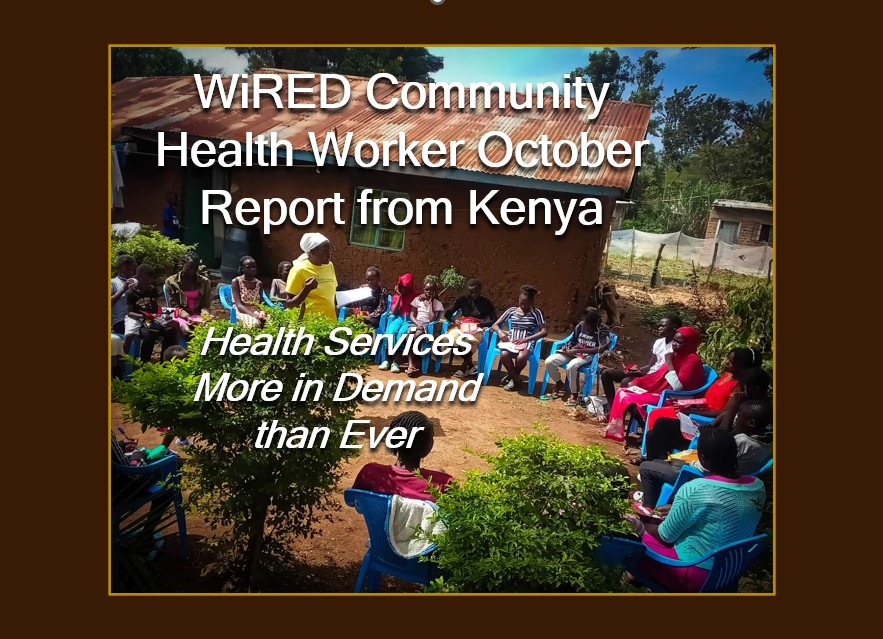By Allison Kozicharow; Edited by Elizabeth Fine
This October WiRED International’s community health worker (CHW) team in Kisumu, Kenya reached more than 10,000 residents with health services — nearly 1,300 more people than in September.
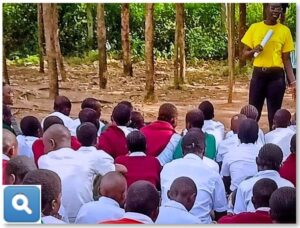 WiRED’s 21-member paraprofessional team reported that the community flocked to health sessions to hear about how they could protect themselves and their families from disease. Due to medicine and vaccine shortages resulting from cuts to global health aid, low-resource communities in many regions have heightened concerns about the spread of disease.
WiRED’s 21-member paraprofessional team reported that the community flocked to health sessions to hear about how they could protect themselves and their families from disease. Due to medicine and vaccine shortages resulting from cuts to global health aid, low-resource communities in many regions have heightened concerns about the spread of disease.
Indeed, CHWs have become such trusted members of communities in Kisumu that WiRED has already begun to train a new team of CHWs to serve even more people in the coming year. (Look for a story on the new class of CHWs in the near future!)
In October WiRED CHWs provided education over a wide range of illnesses and preventive measures. CHWs held health sessions, met with people one on one, visited schools, referred patients to clinics AND accompanied them there and performed home visits and follow-ups. Some quick examples include:
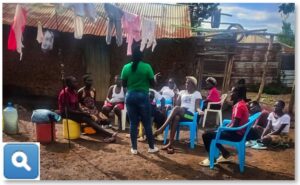 Demonstrating how to make water safe to use
Demonstrating how to make water safe to use- Convincing mothers to vaccinate their children
- Teaching a group of men that beating their wives is not their spousal right
- Visiting secondary schools and discussing gender-based violence
- Cautioning teenagers on the dangers of drug and alcohol abuse
- Educating the population on how to prevent endemic diseases such as malaria, cholera and tuberculosis
- Explaining the importance of proper diet to young athletes.
October 2025 Statistics
During the month of October 2025, 21 CHWs in Kisumu, Kenya, reached a total of 10,265 (up from 8,969 last month) people with health services. Working 24 hours per week, each of the CHWs met with at least 16 patients a week, and the largest number seen in a week by a single CHW was 332, most of them in health training classes.
Top health concerns for October in order of prevalence:
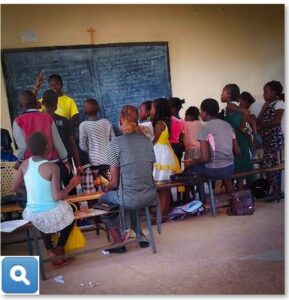 Malaria
Malaria- Tuberculosis
- Mental Health
- Menstrual Hygiene Management
- Cholera
- Typhoid
- Handwashing
- HIV/AIDs
- Family Planning
WiRED’s ever-growing library of health education modules, readily available on their smart phones, enables CHWs to promote healthy practices, disease prevention and to provide palliative care, as well as to refer people to clinics and perform follow-up visits.
October Outcomes
WiRED initiated a new reporting system for our CHWs last March. The new outcomes procedure records data on CHW home visits, referrals and follow-up to help others understand the direct interventions and level of care CHWs provide.
The following include sample outcomes for October. Note that these reports are the CHWs’ own personal stories from the field.
Malaria
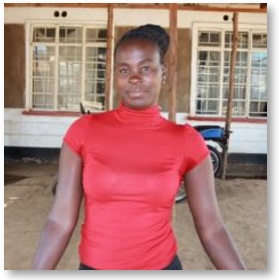 In one of the areas in my community where I work, I had a chat with one of my clients in my session that day. The topic of discussion that day was malaria. We talked about the causes of malaria, from the bites of female Anopheles mosquitoes. We also discussed the signs and symptoms, high fever, shaking chills and even some flu-like symptoms. I also emphasized that most of the time doctors look for weakness in a person/patient. In my session I met a family who were worried about these signs I talked about and told me that one of their kids had similar signs.
In one of the areas in my community where I work, I had a chat with one of my clients in my session that day. The topic of discussion that day was malaria. We talked about the causes of malaria, from the bites of female Anopheles mosquitoes. We also discussed the signs and symptoms, high fever, shaking chills and even some flu-like symptoms. I also emphasized that most of the time doctors look for weakness in a person/patient. In my session I met a family who were worried about these signs I talked about and told me that one of their kids had similar signs.
On completion of my session I met with them, and they agreed to take me to where they live. I discovered that the area looked busy and there was stagnant water just next to their house. Above all the family was not sleeping under treated mosquito nets. I told them to cut the grass and to clear the stagnant water to make it run and, most important, to get treated mosquito nets. I later referred them to the nearest hospital to get all the family members tested for malaria.
The family went to Obunga dispensary where they were all tested for malaria. Unfortunately all the family members had malaria. They were treated and given a dosage of malarial drugs plus treated mosquito nets for the whole family.
The family is now sleeping under treated mosquito nets and are happy.
—CHW Mary Atieno Ogutu
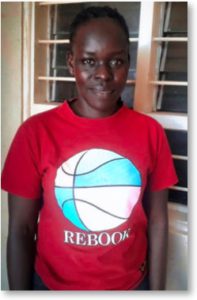 As I was providing health education in the community I came across some 10 people who were eagerly waiting for me to finish giving my lecture so that they could talk with me. After I had finished explaining the signs and symptoms of malaria preventive measures and the mode of transmission, the 10 people came up to me. I took my time to counsel them and then I referred them to the nearest health facility. After three days of follow-ups I found out that six of them were diagnosed with malaria and were under medication.
As I was providing health education in the community I came across some 10 people who were eagerly waiting for me to finish giving my lecture so that they could talk with me. After I had finished explaining the signs and symptoms of malaria preventive measures and the mode of transmission, the 10 people came up to me. I took my time to counsel them and then I referred them to the nearest health facility. After three days of follow-ups I found out that six of them were diagnosed with malaria and were under medication.
—CHW Millicent Randiki
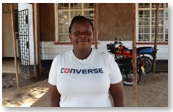 During this month, I managed to refer eight members of a family to Nyawitta dispensary to be tested for malaria. They were tested and confirmed to be malaria positive and treated.
During this month, I managed to refer eight members of a family to Nyawitta dispensary to be tested for malaria. They were tested and confirmed to be malaria positive and treated.
—CHW Lency Mmbone
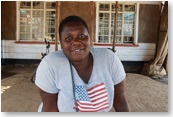 I saw six cases of malaria symptoms. I referred them to the Kosawo dispensary for further treatment and diagnosis. They all turned out to be positive. They are all continuing with medication and three of them have already responded positively. I have taught them the importance of sleeping under treated mosquito nets and taking their malaria drugs according to instructions.
I saw six cases of malaria symptoms. I referred them to the Kosawo dispensary for further treatment and diagnosis. They all turned out to be positive. They are all continuing with medication and three of them have already responded positively. I have taught them the importance of sleeping under treated mosquito nets and taking their malaria drugs according to instructions.
—CHW Bunnyce Atieno
Tuberculosis
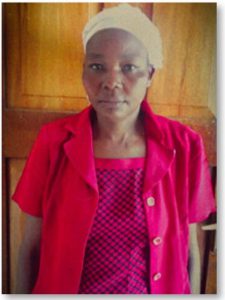 Tuberculosis is a disease that has infected and affected many people in our community in the past years. As of now I refer anyone with a cough to the nearest health facility for diagnosis to detect whether it’s just a normal cough or tuberculosis. The community members are being taught to recognize the signs and symptoms of tuberculosis and to understand the treatment and the dangers it can cause people. They also have to know the different types of tuberculosis, the different drugs and the importance of good drug adherence.
Tuberculosis is a disease that has infected and affected many people in our community in the past years. As of now I refer anyone with a cough to the nearest health facility for diagnosis to detect whether it’s just a normal cough or tuberculosis. The community members are being taught to recognize the signs and symptoms of tuberculosis and to understand the treatment and the dangers it can cause people. They also have to know the different types of tuberculosis, the different drugs and the importance of good drug adherence.
—CHW Milka Aoko Nyadiang’a
 One sunny afternoon while I was doing my usual community visits, I noticed an elderly woman sitting quietly outside her home. She looked weak and was coughing persistently. I greeted her warmly and introduced myself as a community health worker. She smiled faintly and invited me to sit down. As we talked, I learned that she had been feeling unwell for several weeks but hadn’t gone to the clinic because she thought it was just a cold. I noticed she was breathing heavily and had lost weight. Immediately I suspected it could be more serious, possibly tuberculosis. I explained the importance of getting tested and asked her to accompany me to the nearest health facility, which was Kuoyo dispensary, for checkup. She agreed though she was a bit nervous.
One sunny afternoon while I was doing my usual community visits, I noticed an elderly woman sitting quietly outside her home. She looked weak and was coughing persistently. I greeted her warmly and introduced myself as a community health worker. She smiled faintly and invited me to sit down. As we talked, I learned that she had been feeling unwell for several weeks but hadn’t gone to the clinic because she thought it was just a cold. I noticed she was breathing heavily and had lost weight. Immediately I suspected it could be more serious, possibly tuberculosis. I explained the importance of getting tested and asked her to accompany me to the nearest health facility, which was Kuoyo dispensary, for checkup. She agreed though she was a bit nervous.
At the clinic she was examined and tested positive for tuberculosis. Thankfully we caught it early. I later made sure to visit her at her home to monitor progress and check that she took medication and followed the doctor’s advice. I also spoke with the family about infection prevention and the importance of completing treatment. Slowly, she began to regain her strength and even started tending her small garden again.
—CHW Janet Awino Ochieng
Cholera
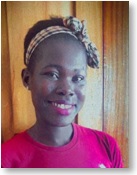 In the month of October when I was educating the community on health, I decided to give out information on cholera and how we can prevent it. We talked about preventive measures and they agreed to always boil or treat water sources. When this is done we will be safe from contaminated water and avoid cholera and other waterborne diseases. After that session I visited one home and found that they are treating water before use and even keeping it in a clean covered container.
In the month of October when I was educating the community on health, I decided to give out information on cholera and how we can prevent it. We talked about preventive measures and they agreed to always boil or treat water sources. When this is done we will be safe from contaminated water and avoid cholera and other waterborne diseases. After that session I visited one home and found that they are treating water before use and even keeping it in a clean covered container.
The community is very happy about WiRED International because of the health education we CHWs are providing to the community.
—CHW Carren Osomo
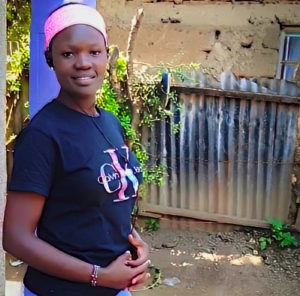 Cholera is a bacterial disease and is spread through contaminated water. It causes diarrhea and dehydration. The risk of a cholera epidemic is highest when poverty, conflict and natural disasters force people to live in crowded conditions without access to clean water. In the community, I advised my clients to always make sure that the water they use is very clean, that drinking water should be boiled or that they can also use water guard to purify the water. Fruits and vegetables must be washed before being eaten. All these precautions, if maintained, can keep us free from diarrhea and stomach ache.
Cholera is a bacterial disease and is spread through contaminated water. It causes diarrhea and dehydration. The risk of a cholera epidemic is highest when poverty, conflict and natural disasters force people to live in crowded conditions without access to clean water. In the community, I advised my clients to always make sure that the water they use is very clean, that drinking water should be boiled or that they can also use water guard to purify the water. Fruits and vegetables must be washed before being eaten. All these precautions, if maintained, can keep us free from diarrhea and stomach ache.
We all agreed to observe general hygiene and to always go to the clinic whenever we encounter cholera symptoms and also to avoid over-the-counter drugs.
In my field work I was giving a health talk. I came across two patients who had signs and symptoms of cholera. I referred them to Kuoyo health center where they were diagnosed with cholera. They are under treatment and are responding well.
—CHW Liz Adhiambo
Gender-Based Violence (GBV)
 During this month, I came across students from Kudho junior secondary school and we discussed GBV. They were eager to learn about GBV, had so many questions and were eager to learn more on different types of violence.
During this month, I came across students from Kudho junior secondary school and we discussed GBV. They were eager to learn about GBV, had so many questions and were eager to learn more on different types of violence.
We talked about sexual violence, emotional violence and physical violence. The latter is the most common in our community because no one understands if it’s normal or they’re being abused.
The students were very happy to know more about gender-based violence, which they didn’t know much about. Also the teachers were very happy for the feeling of empowerment through education from WiRED International.
—CHW Lency Mmbone
 GBV is so rampant in the community and also the country of Kenya as a whole. We have seen many cases of women being beaten to death and still the society is quiet about this. I talked to a group of young and old men and women, and I told them no one deserves to be beaten in the name of marriage rights or any reason. Most men complained that women must be beaten because it’s the only language they understand. I disagreed with them and discussed with them the damages of beating a woman, and we both came to an agreement that beating women is old fashioned. Most men agreed with me and a few promised to stop.
GBV is so rampant in the community and also the country of Kenya as a whole. We have seen many cases of women being beaten to death and still the society is quiet about this. I talked to a group of young and old men and women, and I told them no one deserves to be beaten in the name of marriage rights or any reason. Most men complained that women must be beaten because it’s the only language they understand. I disagreed with them and discussed with them the damages of beating a woman, and we both came to an agreement that beating women is old fashioned. Most men agreed with me and a few promised to stop.
—CHW Bunnyce Atieno
Drug and Substance Abuse
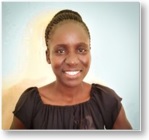 On my daily duty, I met with students from Kudho junior secondary school. I took them through the topic of drug and substance abuse. During my talk some students asked that I teach them also on how to overcome peer pressure, that some of their peers have been swept by a wave that introduced them to drugs and substance abuse, e.g., alcohol and cigarettes. I shared at length on how to overcome peer pressure and also some other methods of drug prevention and also kinds of treatment.
On my daily duty, I met with students from Kudho junior secondary school. I took them through the topic of drug and substance abuse. During my talk some students asked that I teach them also on how to overcome peer pressure, that some of their peers have been swept by a wave that introduced them to drugs and substance abuse, e.g., alcohol and cigarettes. I shared at length on how to overcome peer pressure and also some other methods of drug prevention and also kinds of treatment.
Ten students who were about to join the abuse club of the naughty boys changed their minds.
—CHW Imeldah Anyango
Sexually Transmitted Infections (STIs)
 Within this month of October, I had a one-on-one meeting with a certain married man. He approached me based on how he has been seeing me moving around the community teaching people about health. He opened up to me and shared with me about his treatment for STIs. As He has been faithful to his wife, so he suspects she is unfaithful. As we were conversing I noticed he had some symptoms from previous infections. I encouraged and advised him to visit the hospital with his wife for further consultation and assessment. They were evaluated when they went to the hospital, and the evaluation revealed that they both had STIs. Because the woman was in danger of having her womb affected, the doctor advised them to be faithful to one another. They received medication and continue to receive medical care. I am still doing my follow-ups to make sure that they adhere correctly to their medication.
Within this month of October, I had a one-on-one meeting with a certain married man. He approached me based on how he has been seeing me moving around the community teaching people about health. He opened up to me and shared with me about his treatment for STIs. As He has been faithful to his wife, so he suspects she is unfaithful. As we were conversing I noticed he had some symptoms from previous infections. I encouraged and advised him to visit the hospital with his wife for further consultation and assessment. They were evaluated when they went to the hospital, and the evaluation revealed that they both had STIs. Because the woman was in danger of having her womb affected, the doctor advised them to be faithful to one another. They received medication and continue to receive medical care. I am still doing my follow-ups to make sure that they adhere correctly to their medication.
—CHW Daniel Ayieko
Dysentery

I encountered a household where two under-age-five children showed symptoms of dysentery. The first child, aged two, started having diarrhea with blood, cramps, fever, chills, nausea and dehydration according to the description given out by the mother. The next day the four-year-old child demonstrated the same symptoms. I referred the children to Kuoyo dispensary for medical treatment. The doctors intervened by giving out fluid intake using oral rehydration therapy; thus, the children are still under medication and there is an improvement.
—CHW Tracy Agatha Achieng’
Diet and Sports
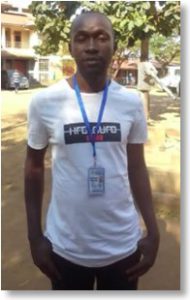 A balanced diet is essential to the performance of an athlete. It provides the body with much needed energy through carbohydrates, helps in the repair of muscles with protein and in supporting overall health. During this reporting period I met a group of footballers and encouraged them to observe a proper balanced diet to keep their body fit and have enough energy for exercise and competition.
A balanced diet is essential to the performance of an athlete. It provides the body with much needed energy through carbohydrates, helps in the repair of muscles with protein and in supporting overall health. During this reporting period I met a group of footballers and encouraged them to observe a proper balanced diet to keep their body fit and have enough energy for exercise and competition.
The athletes of that team took the initial steps to attend the local gymnasium to improve on their quality of health.
—CHW Zachary Omondi
Measles
 As I was going round in the community educating them about health issues, I came across a child who was given a measles vaccine at the age of nine months. The child has been sick most of the time, and the mother was not willing to take her for further measles vaccination because of her religion. When I talked to her one-on-one after the session, she told me that she was willing to take the child for vaccination but needs me to escort her to the facility. We went to the facility and the child was vaccinated and the nurses were able to counsel and talk with the mother on the importance of all vaccinations. The mother is very thankful to WiRED for bringing health education to the community.
As I was going round in the community educating them about health issues, I came across a child who was given a measles vaccine at the age of nine months. The child has been sick most of the time, and the mother was not willing to take her for further measles vaccination because of her religion. When I talked to her one-on-one after the session, she told me that she was willing to take the child for vaccination but needs me to escort her to the facility. We went to the facility and the child was vaccinated and the nurses were able to counsel and talk with the mother on the importance of all vaccinations. The mother is very thankful to WiRED for bringing health education to the community.
—CHW Milka Aoko Nyadiang’a
The following list is all in a day’s work for WiRED’s 19-member paraprofessional CHW team. Their work includes:
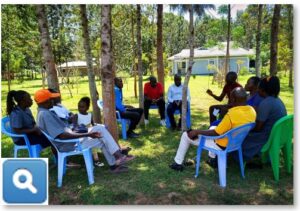 Hosting group sessions about disease awareness, prevention and treatment
Hosting group sessions about disease awareness, prevention and treatment- Talking one-on-one with people
- Screening for illnesses
- Treating common complaints
- Providing simple medications to ease pain in the midst of stoppage of health funding programs, especially from the United States
- Performing home visits and offering home care
- Making referrals to clinics as needed
- Following up with patients to check on their recovery and ensure that they are taking any prescribed medications properly
- Accessing WiRED’s library of health modules through our apps (Android app and Apple)
- Taking WiRED-required continuing medical education to remain up to date with their skills.


